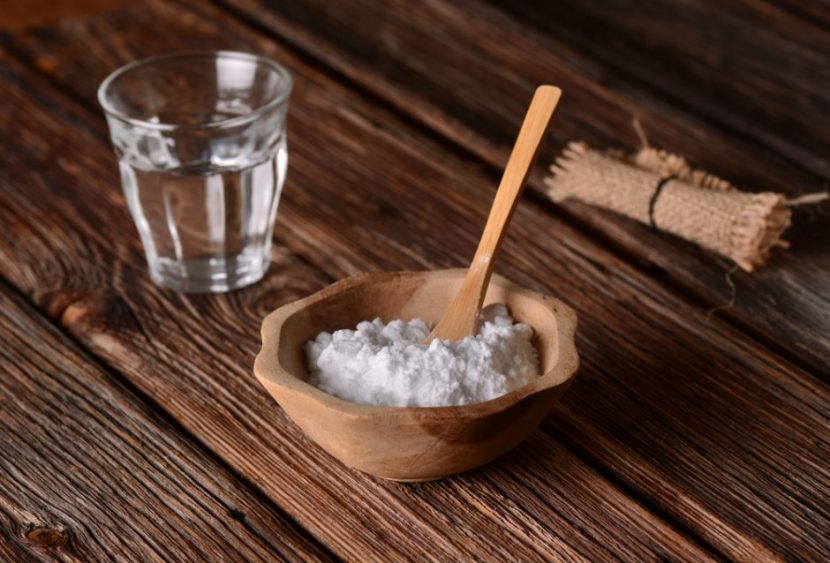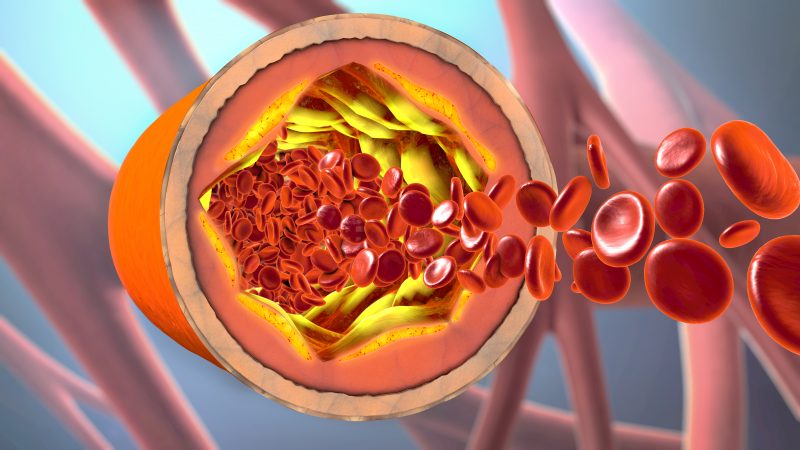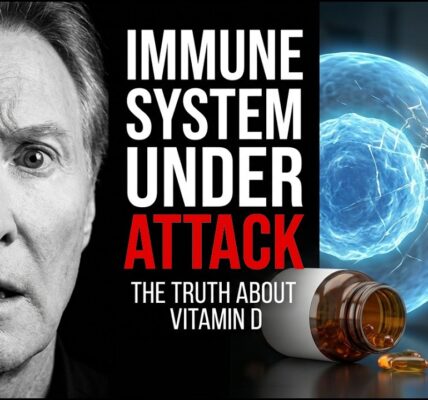Do you really know what you need to know about cholesterol? Do you know the truth about how diet does and does not affect it? How about how body weight affects it? Surprisingly, even though cholesterol has been discussed for many decades, the facts about cholesterol are still lost on most.
Why?
Misinformation abounds. New studies shed new light on the subject. As our population has become increasingly overweight, people’s bodies (all the way down to their cells) change in how they synthesize and deal with cholesterol.
To know the facts about cholesterol, you really have to dig in. It’s simple and yet complex in some ways.
If you’re ready for the complete low-down on cholesterol, listen to the Divine Health Podcast! Dr. Colbert and Mary Colbert will take you on an in-depth journey to know all you need to know about cholesterol and how to obtain your best heart health! Check out all 3 cholesterol episodes here: Divine Health with Dr. Don Colbert Podcast.
And for now, here are 10 shocking facts about cholesterol you probably don’t know.
10 Shocking Facts About Cholesterol You Don’t Know
1. A heart healthy diet is imperative for overall heart health. But when it comes to cholesterol itself in the bloodstream, most is made by the body, not consumed in the diet.
In fact, only about 20% of the cholesterol in your body comes from your diet. The rest is synthesized in your liver and intestines (1).
How does diet play a role? Many ways! First, your diet affects how much, and what types of cholesterol are synthesized. In fact, the types of fats you eat play a bigger role than the cholesterol you eat. Next, eating a diet high in antioxidants is paramount, since antioxidants reduce the amount of oxidized cholesterol (which forms plaques) in the arteries.
2. Vegetable oils do not contain cholesterol, however, many are still inflammatory and detrimental to heart health.
Oils derived from vegetables and grains, including avocado oil, olive oil, corn oil, and others have zero milligrams of cholesterol. Foods derived from plants do not contain cholesterol because cholesterol is synthesized in an animal’s liver.
However, vegetable oils with high omega-6 content increase inflammatory pathways in our bodies because they negatively affect our ratio of omega-3s to omega-6s. This means they fight against the anti-inflammatory omega-6s in our bodies. The most commonly used high-omega-6 oil in processed foods is soybean oil. Consuming this oil negatively affects metabolic health, cardiovascular health, and inflammation in the body (2, 3, 4).
Avoid: Safflower oil (10.1 gm Omega-6 per tablespoon), grapeseed oil (9.5 gm), vegetable Oil (7.9 gm), wheat germ oil (7.5 gm), corn oil (7.3 gm), walnut oil (7.3 gm), cottonseed oil (7.0 gm), soybean (7.0 gm), sunflower Oil (5.4 gm), canola Oil (3.0 gm).
Include: Extra-virgin olive oil (1.3 gm), avocado oil (1.8 gm) and occasionally organic coconut oil (0.4 gm), high-oleic sunflower (0.5), and high-oleic safflower oils (2.0).
To learn more about this ratio and the dangers of a high omega-6 diet, click here.
3. Weight Loss, Diet, and Exercise are your best options to ALTER unhealthy cholesterol numbers.
While your absolute cholesterol number is highly influenced by your familial history, age, sex, and ethnicity (5), CHANGES in total cholesterol are primarily achieved by weight loss (if overweight), diet, and exercise (6, 7).
4. Your Body Needs Cholesterol for Crucial Tasks Such as Synthesizing Vitamin D.
Cholesterol is a waxy, whitish-yellow fat. Cholesterol is needed to make vitamin D, hormones (including testosterone and estrogen), and fat-dissolving bile acids. It is a vital building block in cell membranes. Cholesterol can be found in every cell in the body.
What’s more, cholesterol is important for the formation of myelin sheath, the protective membrane around the nerves, especially in early years of life. Healthy cholesterol has its place in human health.
5. Cholesterol does NOT dissolve in the blood to make it thick.
Cholesterol doesn’t dissolve in the blood, kind of like how fat won’t dissolve in water. Instead, cholesterol bonds to carriers called lipoproteins. Lipoproteins are made up of cholesterol on the inside with a layer of protein on the outside. These carriers transport cholesterol between cells to be used for various biological functions.
When cholesterol is oxidized, it can embed into the artery wall which can lead to plaques and blockages.
6. Not all LDL cholesterol (aka bad cholesterol) creates plaques in arteries.
As most people know, there are two primary types of cholesterol, Low-density lipoproteins (LDL) and High-density lipoproteins (HDL) cholesterol.
LDL cholesterol is taught as “bad,” and HDL as “good.” But there’s more to it than that.
There are actually two sub-groups of LDL particles. LDL subtype A is a large fluffy cholesterol particle that is less prone to oxidation and less likely to stick to arterial walls. LDL subtype B is a smaller and denser particle that is easily oxidized and more likely to build up in the arteries.
Subtype A LDL cholesterol is not necessarily a threat, and only oxidized LDL cholesterol forms plaques (8).
7. Triglyceride numbers and cholesterol numbers should be looked at together when assessing cardiovascular risk.
Interestingly, more and more practitioners are looking at the ratio of triglycerides (TG) to HDL. In fact, when you calculate this ratio, you can infer your health risk of cardiovascular issues, blood sugar issues, inflammation and more.
Divide your triglycerides by your HDL cholesterol levels. Studies have found that a number of 1.0 or less is likely indicative of lower risk, and a number of 3.0 or more of highest risk.
Interestingly, a lower ratio is also linked to healthier LDL subset particle size (less subset B) (9, 10).
8. People who suffer heart attacks don’t always have high cholesterol. Conversely, those with high cholesterol don’t always suffer heart attacks.
While high LDL cholesterol (specifically, high LDL subset B) is one of many risk factors of heart conditions and heart attacks, many people who have heart attacks have “normal” cholesterol levels (11).
When assessing risk, we should look at our heart illness risk overall, including weight, blood glucose, lifestyle, inflammation markers, blood pressure, triglycerides, and specifically LDL Subset B cholesterol numbers. It is not the primary risk factor.
9. Inflammation is a primary factor in cardiovascular risk.
Cholesterol is an active compound in the body. It reacts to oxidative stress and inflammation. Here’s how:
As free radicals move throughout the body and damage cells, cumulative oxidative stress rises. Next, the body mounts an inflammatory response and cholesterol comes in to patch things up.
When cholesterol can also become damaged and oxidized by free radicals. Oxidized cholesterol is sticky. It can embed into artery walls and potentially form plaques and blockages (12).
10. Statins may be useful in some, but they are not completely safe and effective.
While statins may be right for some patients, no medication is completely safe, and no medication is completely effective.
While it is true that statins typically lower overall cholesterol, there are some harmful side effects of which you should be aware.
First, statins may lower total cholesterol too much. This can lead to inadequate cholesterol levels for proper brain function (25% of cholesterol is in the brain). It can also interfere with and inhibit the benefits of omega-3 fats. Statins metabolize omega-6 fatty acids which work against omega-3s and can promote resistance to insulin, and elevated blood glucose levels.
Like most medications, statins include a risk of damage to organs and systems in the body (13).
Lastly, chronic use of statins has also been shown to interfere with the body’s production of coenzyme Q10 (CoQ10). CoQ10 is critical for immune and nervous system health, and also bolsters heart health, proper muscle function, and healthy blood pressure, among much else. If you are on statins it is very important to supplement with CoQ10.
Ready to Do All You Can to Support Healthy Cholesterol Numbers and Heart Health?
Dr. Colbert has devised an amazing guide to help you obtain a healthy weight, healthy cholesterol, and overall great health for life: Beyond Keto. When you follow this plan that marries the best of the Mediterranean Diet with the best of Keto Zone, you can optimize your health efficiently and effectively.
Try Beyond Keto and get started today. Then, listen to the podcast and learn even more facts about cholesterol!
Bottom Line
After decades of confusing information, new studies, changes in lifestyles and societal health, and more, it’s important to learn the facts about cholesterol. Learn all you can. Listen to Dr. Colbert’s Podcast, it’s a wealth of free information to keep you up to date on what you can do to support your heart health and cholesterol numbers, every day.
















